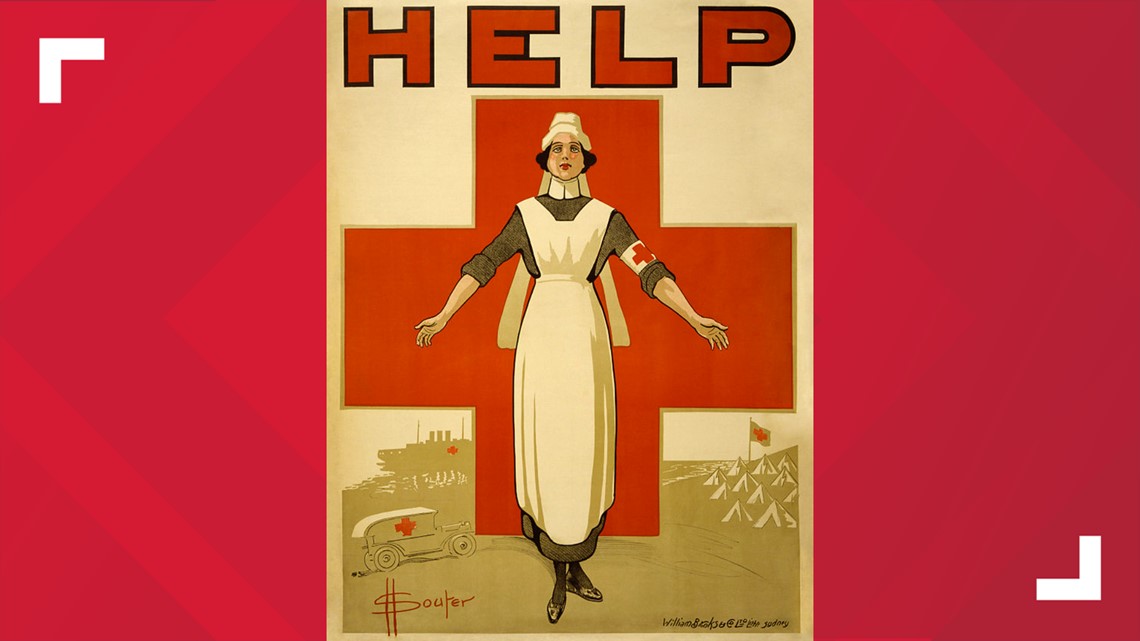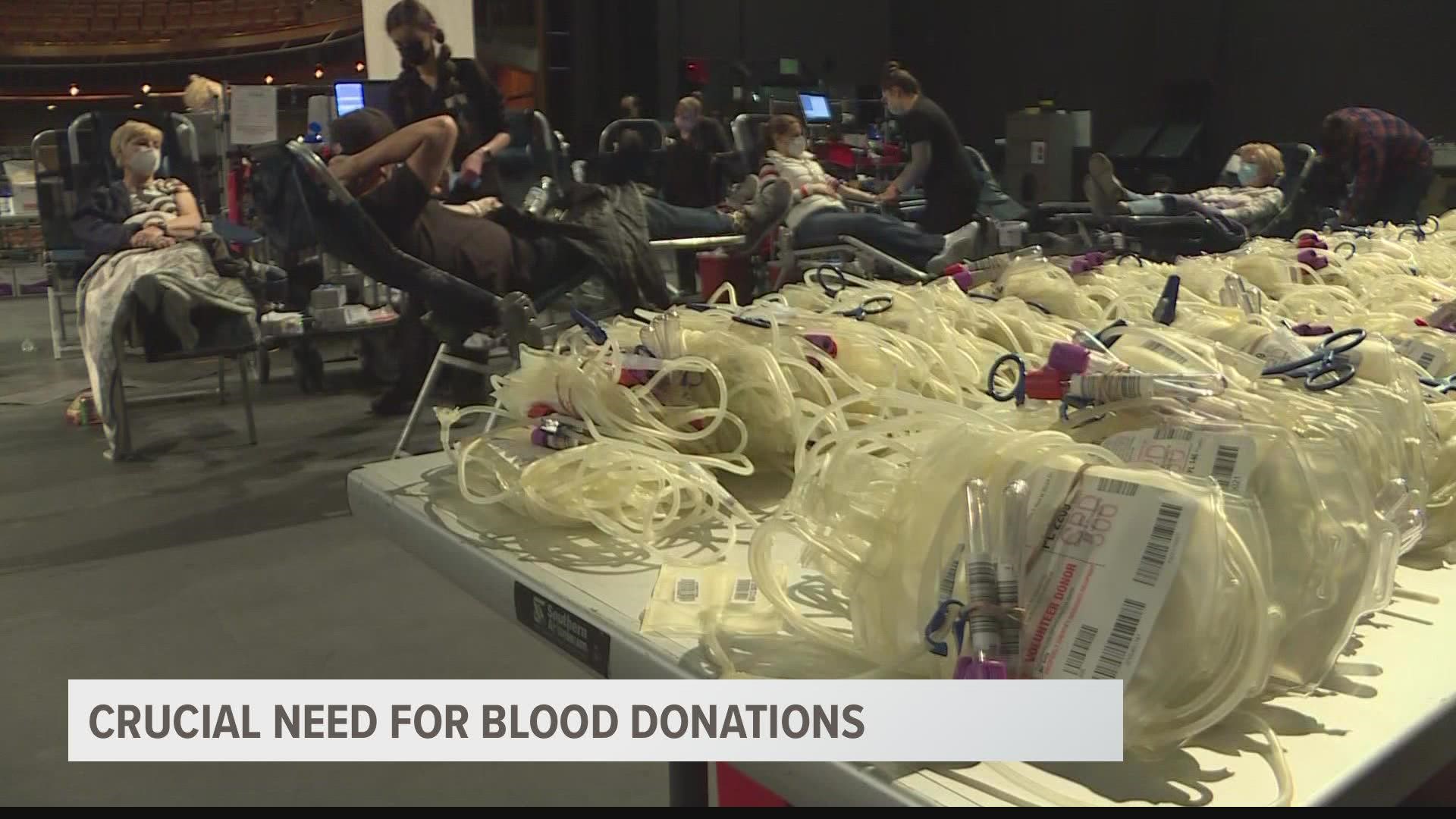WHITE OAK, Md. — Editor's note: The above video aired during a previous broadcast before the national blood shortage was declared.
The nation is in the midst of its first-ever national blood crisis due to low donor turnout and high demand amid the COVID-19 pandemic, according to the Red Cross.
One group of donors still faces major hurdles in being allowed to donate their blood, even amidst the crisis.
Gay and bisexual men have seen numerous policy changes when it comes to donating blood during a time when blood is mass tested for HIV. The reasons behind these hurdles are rooted in history and go beyond the Red Cross.
Can gay and bisexual men donate blood to the Red Cross?
Gay and bisexual men are technically allowed to donate blood to the Red Cross. A caveat to this, however, is sexual abstinence.
In 1983, the Federal Food and Drug Administration put guidelines in place that banned any man who had sex with another man since 1977, even once, from donating blood.
The federal ban put a focus on gay and bisexual men becuase it was created during the height of the AIDS crisis when there was a fear of an "HIV-contaminated blood supply." Numerous activists and medical experts have since argued that risk behaviors, not sexual orientation, should be the main focus of deferring blood donors.


The first HIV blood test was developed in 1985, not long after the FDA's ban was put into place. The tests have greatly grown in accuracy and complexity since then. It was for this reason that the FDA decided to change its guidelines.
The change came in 2018 after years of pressure from the Red Cross, the American Medical Association, and other medical agencies asking for the policy to be more based in current medical data. The FDA, in response, lifted the ban on one condition: a man can't donate blood if he's had sex with another man in the past year.
This guideline was amended again in 2021 due to the urgent need for blood across the country during the COVID-19 pandemic. The celibacy period was lowered from one year to three months.
Activist organizations still see the FDA's blood donation policy as outdated
Organizations focused on civil liberties and LGBTQIA+ issues see the current three-month celibacy caveat as one based on fear rather than backed up by science.
GLAAD, an organization focused on the portrayal of queer people in the media, said that denying men the opportunity to donate blood based solely on their sexual orientation is discriminatory.
"Since the beginning of the AIDS epidemic, gay men have been wrongfully blamed for the transmission of HIV," GLAAD said in an article on its website. "The FDA based their deferral policy precisely on this view, backing up their recommendations with the 'high rates of HIV in the [MSM] population'."
All blood given to the Red Cross and other medical agencies goes through a rigorous series of tests to determine the possible presence of HIV and other blood-borne pathogens like hepatitis, syphilis and malaria, according to the Human Rights Campaign (HRC).
The downside is that none of the tests are 100% accurate.
"Despite current restrictions and testing of approximately 12 million units donated each year, 10 HIV-infected units have slipped through," HRC said. "Because gay and bisexual men have a higher incidence of disease, they are eliminated from the donor pool immediately."
HRC said it understands that the safety of the blood supply is paramount, but equitable changes in how the FDA treats potential donors can still be made.
"Human Rights Campaign believes that the updated policy, like its precursors, does not treat persons with like risks in a similar way," HRC said.
"HRC has strongly encouraged FDA to revise the donor questionnaire based on an individual risk assessment of sexual behaviors upon which all donors are evaluated equally, without regard to sexual orientation or gender identity."
VERIFY
Did you miss one of our Verify segments? You can find all of our VERIFY stories on this playlist.

